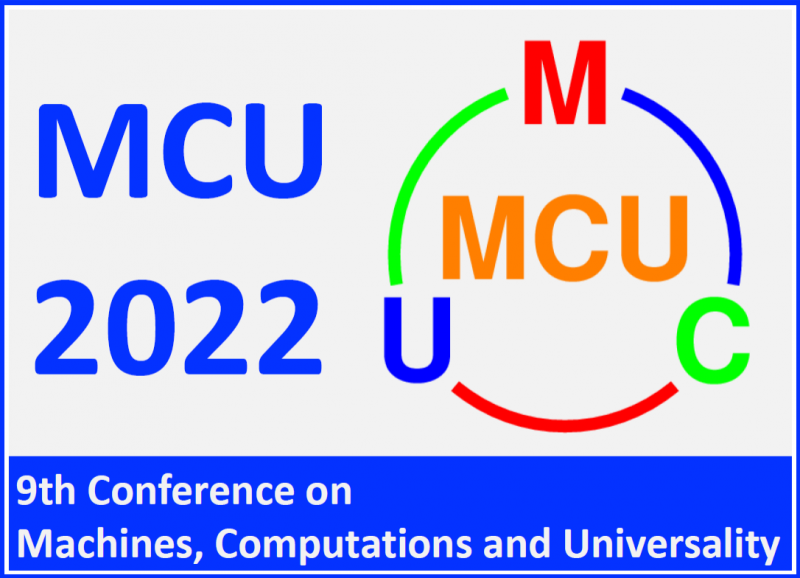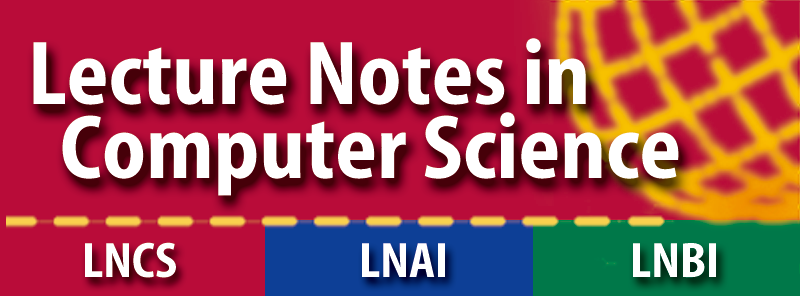- magyar
- english
- Русский
MCU 2022 - 9th Conference on Machines, Computations and Universality
Important Dates
- Submission deadline:
April 24, May 8, 2022, - Notification of acceptance:
May 23, May 30, 2022, - Final version:
June 5, June 10, 2022.

General Information
The International conference series MCU traces its roots back to the mid 1990's, and has always been concerned with gaining a deeper understanding of computation and universality through the study of models of general purpose computation.
The 9th edition of MCU is organized by the Faculty of Informatics of the University of Debrecen, it is co-located with NCMA 2022, the 12th International Workshop on Non-Classical Models of Automata and Applications (August 26-27, 2022) and DCFS 2022, the 24th Conference on Descriptional Complexity of Formal Systems (August 29-31, 2022).
The conference will take place in a hybrid format: the possibility of both, in-person and online participation will be provided.
Proceedings
The MCU conference series with the LNCS volumes on SpringerLink: https://link.springer.com/conference/mcu
The volume containing the proceedings of MCU 2022 is available online at: https://link.springer.com/book/10.1007/978-3-031-13502-6

Special Issue
A selection of papers will be invited to submit extended versions for publication in a special issue of the International Journal of Foundations of Computer Science.
Downloads
- The list of participants is available.
- The updated call for papers in single page format for printing is available.
Aims and Scope
The scope of the conference topics includes, but is not limited to, computation in the setting of various discrete models (Turing machines, register machines, cellular automata, tile assembly systems, rewriting systems, molecular computing models, neural models...), analog and hybrid models (BSS machines, infinite time cellular automata, real machines, quantum computing...) and the meaning and implantation of universality in these contexts. Particular emphasis is given towards search for frontiers between decidability and undecidability in the various models, search for the simplest universal models, computational complexity of predicting the evolution of computations in the various models. Parallel computing models and their connections to decidability, complexity and universality.
Topics of interest include, but not exclusively:
- Analog computation
- Automata theory
- Cellular automata
- Classical computability and degree structures
- Computability theoretic aspects of programs
- Computable analysis and real computation
- Computable structures and models
- Continuous computing
- Decidability of theories
- DNA computing, self-assembly and tiling
- Dynamical systems and computational models
- Emerging and non-standard models of computation
- Finite model theory
- Generalized recursion theory
- Higher type computability
- Hyper-computational models
- Infinite time Turing machines
- Membrane computing
- Molecular computation
- Morphogenesis and developmental biology
- Multi-agent systems
- Natural computation and Hybrid systems
- Neural nets and connectionist models
- Physics and computability
- Proof theory and computability
- Randomness and Kolmogorov complexity
- Relativistic computation
- Swarm intelligence and self-organisation
- Theory of Petri nets
- Turing, Counter, Register, Signal machines
- Universality of systems
Author Guidelines
Submitted papers must describe work not previously published, and they must neither be accepted nor under review at a journal or at another conference with refereed proceedings. Authors are required to submit their manuscripts electronically in PDF using the LNCS style.
A best paper and a best student paper will be selected by the program committee and announced during the conference. To be eligible for best student paper, except for at most one PhD adviser co-author, all co-authors and the person presenting the paper should at most have presented their PhD after September 1, 2021.


